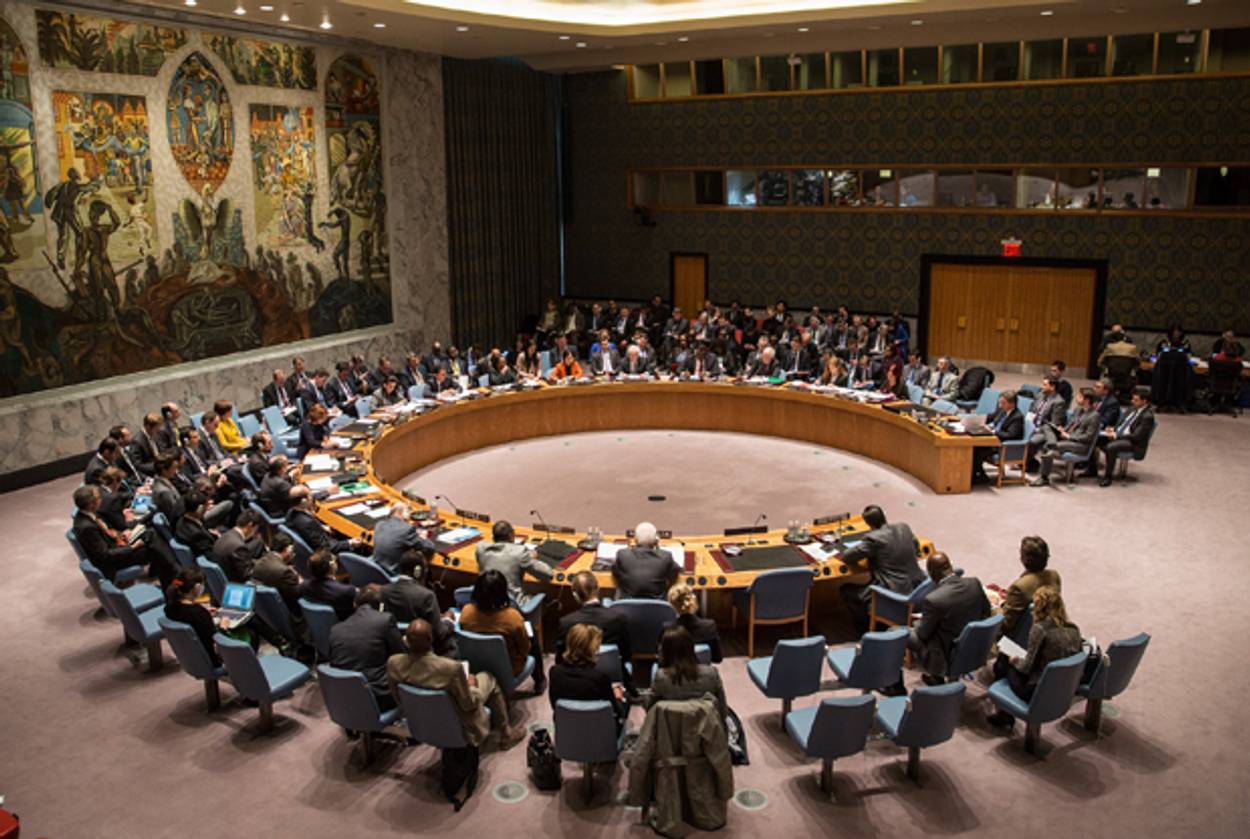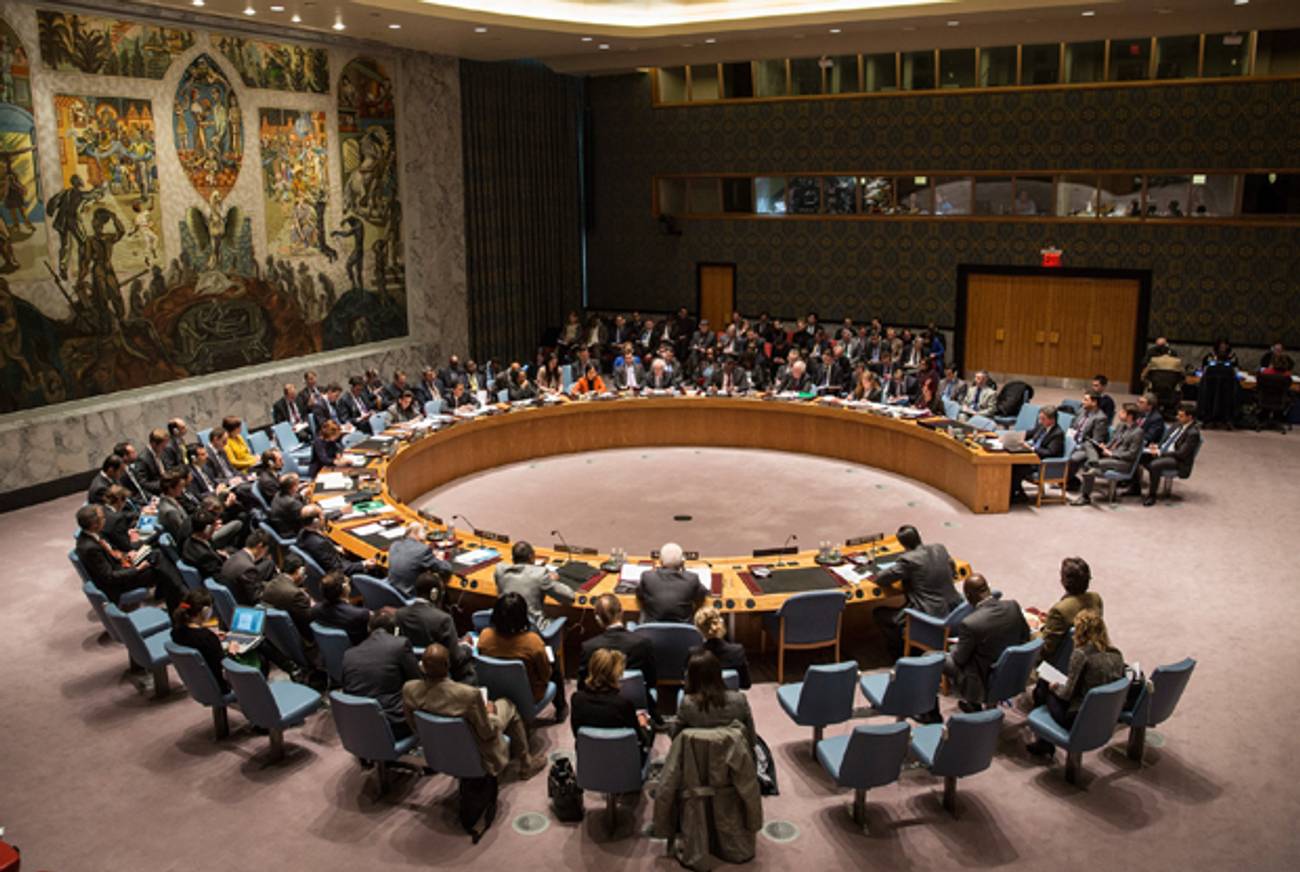Even AIPAC Has Trouble Mustering U.N. Outrage
A year of deadlock and diplomatic failure has defanged the organization




One indication of the fading relevance of the United Nations in the public consciousness is how few people showed up to today’s AIPAC panel about it. In the past, few subjects would fire up pro-Israel activists more than the international body’s long-standing inquisition against the Jewish state. After all, while many issues arising from the Israeli-Palestinian conflict are morally complex, the U.N.’s mistreatment of Israel has no such nuances. From labeling Zionism a form of racism, to barring Israel from serving on any committees for decades, to passing scores of resolutions against the Jewish state and few to none against any other countries, to putting a promoter of Holocaust denial in charge of prosecuting Israeli human rights abuses, the U.N. has subjected Israel to “a barrage of obsessive, unbalanced, and relentless criticism,” in the words of President Obama’s former ambassador to the body, Susan Rice.
And yet, despite a set of all-star panelists–U.S. Ambassador to UNESCO David Killion, Israeli Ambassador Aharon Leshno Yaar, and human rights NGO head Hillel Neuer–only a third of the seats were full at this afternoon’s session: “Report Card: Israel at the U.N.” Last year, by contrast, the house was packed. But as the U.N. has been exposed as increasingly impotent when it comes to global crises ranging from Syria to Ukraine, it has become increasingly irrelevant in the eyes of activists. Even its arch-enemies no longer take it seriously.
That’s not a posture, however, that Israel can afford to take, said Leshno Yaar, who until August 2012 served as Israel’s Permanent Representative to the United Nations in Geneva. “As Israel, I cannot afford to ignore the U.N.,” he said, explaining how the body’s non-binding resolutions of today are designed to hobble Israel’s ability to defend itself and open it to prosecution in places like the International Court of Justice tomorrow. The political theater of the U.N. may sometimes seem inconsequential, but its long-term corrosive impact—both on Israel and human rights discourse in general—should not be underestimated.
Hillel Neuer, the executive director of U.N. Watch, a Geneva-based NGO, outlined some of the organization’s hypocrisies, calling out not just dictatorships who use their positions on bodies like the U.N. Human Rights Council to shield themselves from criticism, but the Western countries who go along with them. “It is not just dictatorships, it is democracies that participate in the subversion of human rights,” he argued. One perverse consequence of this state of affairs: Today, Russian Foreign Minister Sergei Lavrov opened his speech at the U.N. defending his government’s encroachment into Ukraine by pointing to his country’s election to the U.N. Human Rights Council. “Russia was once again elected member of the United Nations Human Rights Council by an overwhelming majority,” Lavrov said. “We appreciate this support which we view as an acknowledgement of our country’s constructive approach to this sphere of multilateral cooperation.”
It fell to David Killion, the United States’s envoy to UNESCO, to defend the U.N. despite its many faults, and explain the Obama administration’s efforts to engage the body. He pointed out that UNESCO offers an extensive international Holocaust education program, and that the body was founded as a response to the Holocaust. And he asserted that the Obama administration’s “no votes” had short-circuited “multiple Goldstone-type inquiries.”
But while the panelists differed on the merits of the various U.N. bodies, they were in complete agreement on the bottom line. “The U.S. is Israel’s best friend at the U.N.,” said Leshno Yaar. “Without the U.S., Israel is in big trouble.”
Previous: Four Ways the U.N. Has Messed Over Israel
Related: Israel’s U.N. Envoy Has a Message for the World: Laugh With Me
Yair Rosenberg is a senior writer at Tablet. Subscribe to his newsletter, listen to his music, and follow him on Twitter and Facebook.